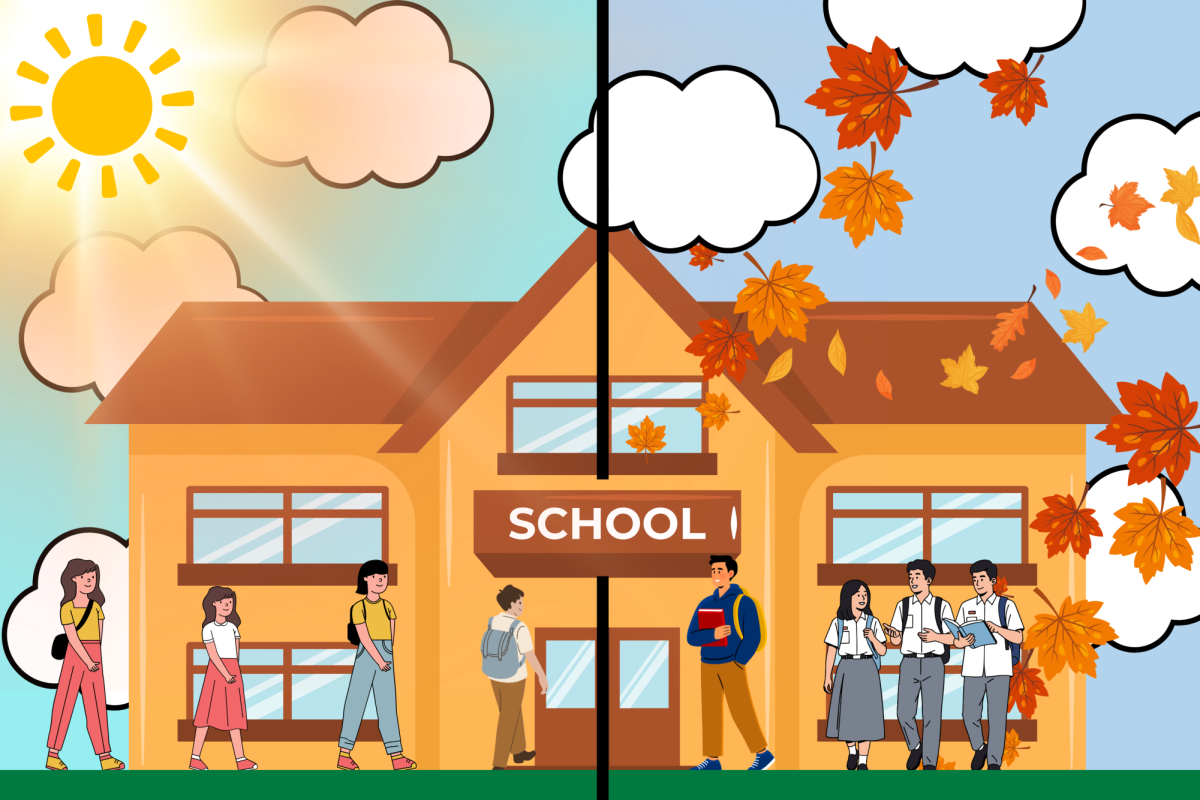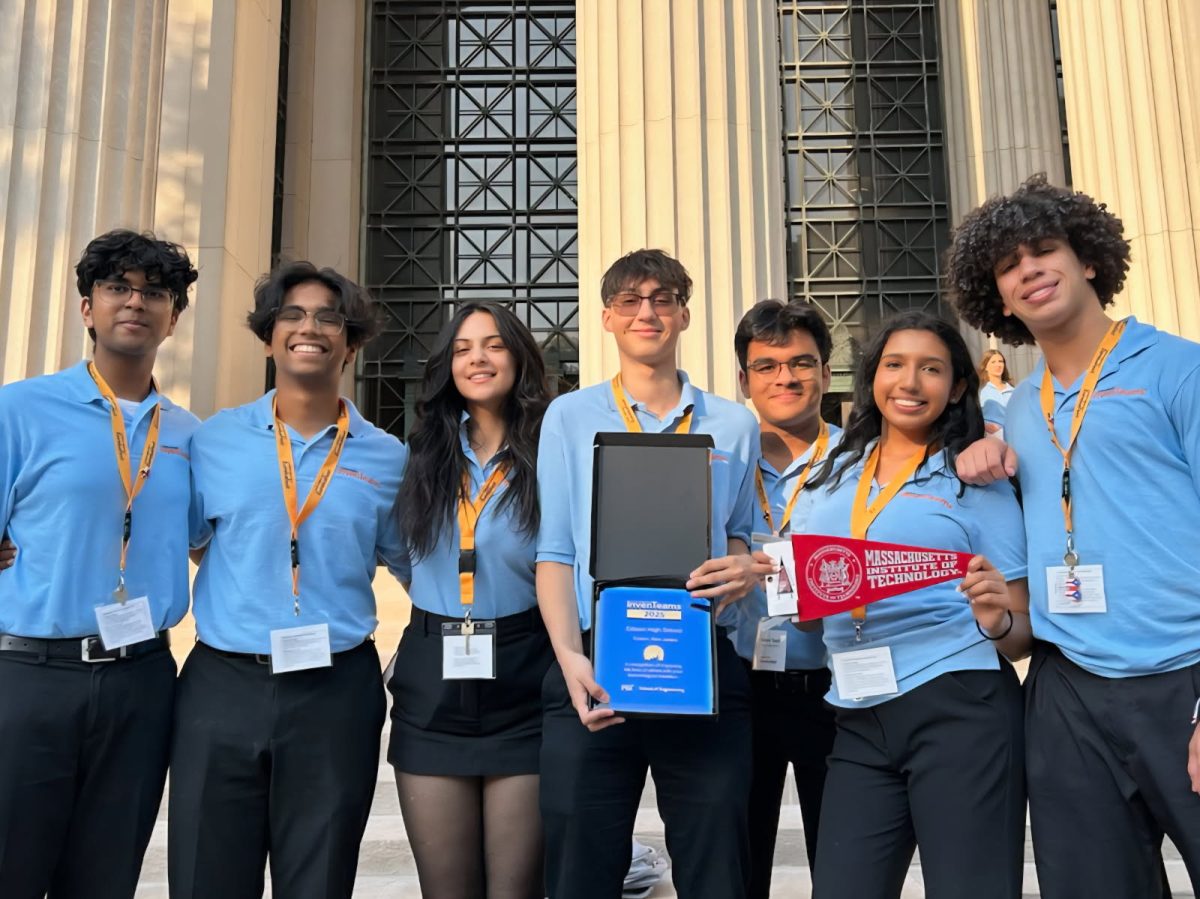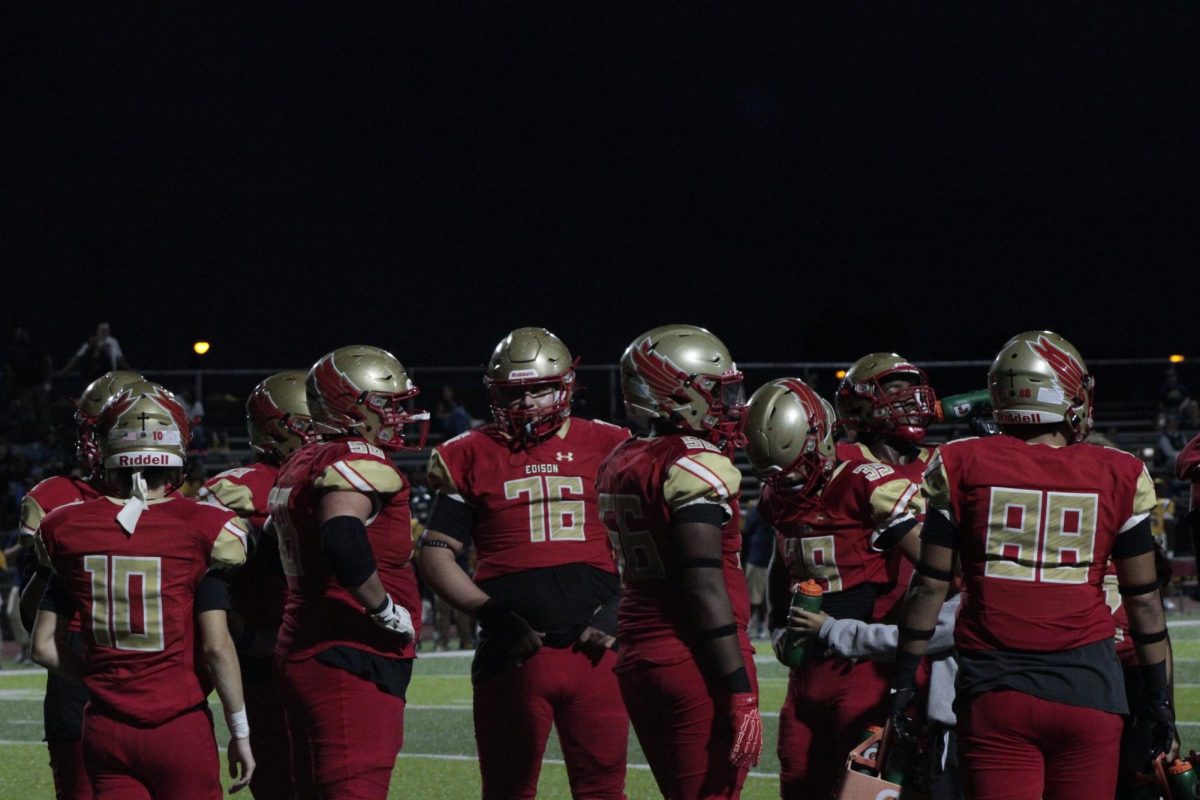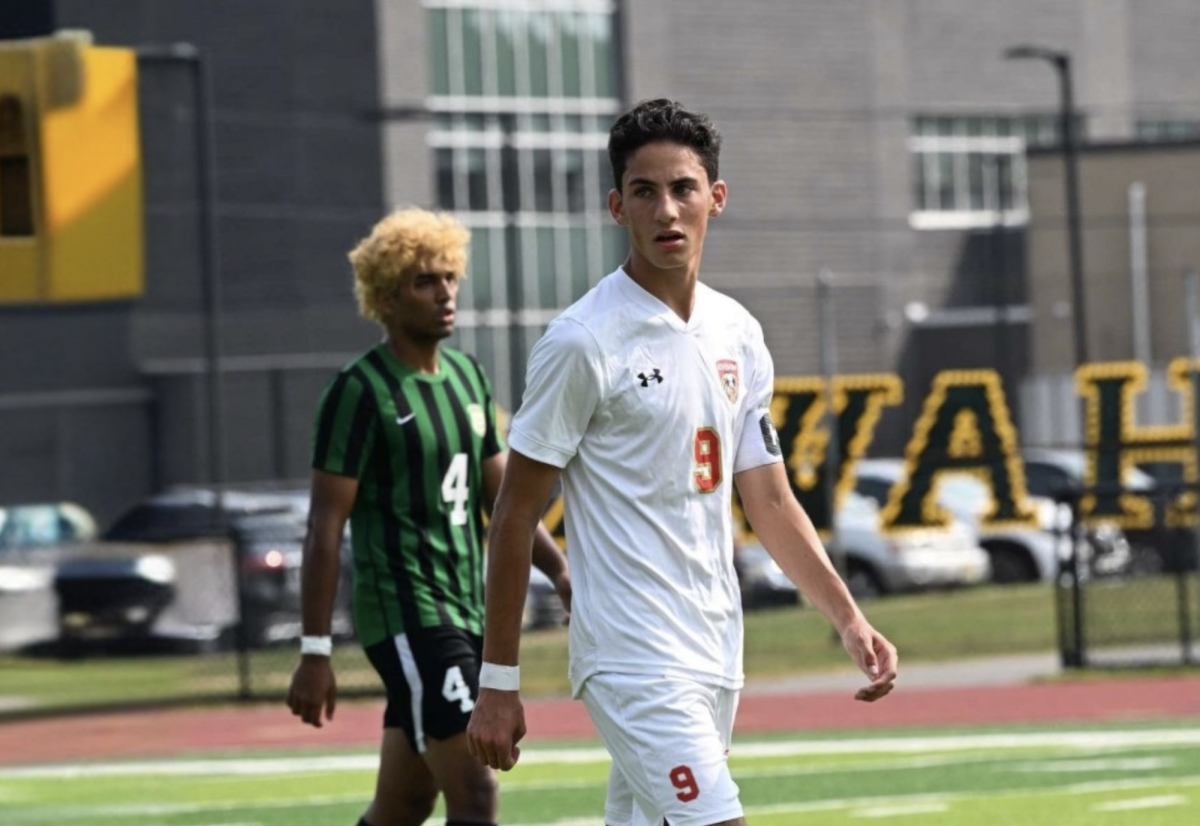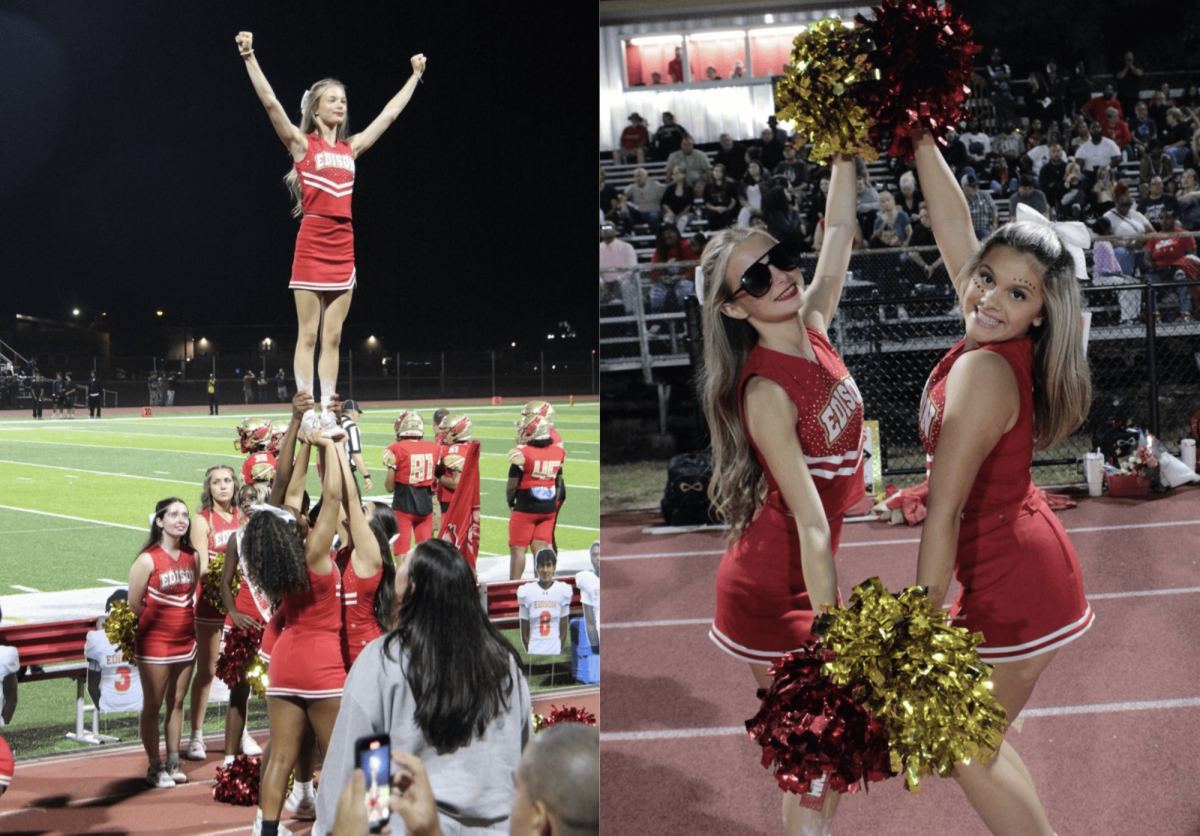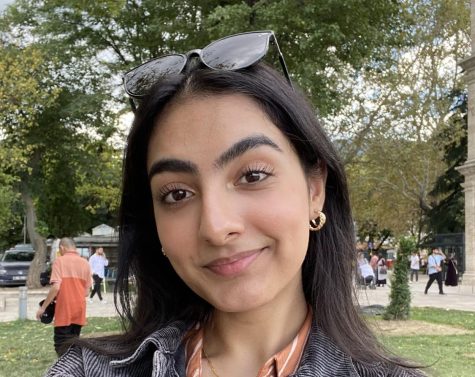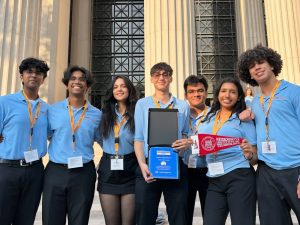Eid Mubarak, EHS!: Students finally celebrate after 30 days of fasting and fatigue…
May 17, 2021
The sighting of a new crescent moon marks the beginning of a new month in the Islamic Calendar. This year, the new moon was sighted on April 13. During this holy month of Ramadan, able-boded Muslims fast from dawn till dusk. The thirty days of this religious ritual ends with a celebration called Eid-ul-Fitr, “the festival of breaking the fast”. Beginning with morning communal prayers, the festivities of Eid last for three days and often include, but are not limited to, the exchange of gifts, family gatherings, feasts, and carnivals. For the past two years, the coronavirus pandemic has interrupted Ramadan observances all around the world. Ramadan this year, however, has been unlike any other for Edison High students who fasted amidst a pandemic, while being faced with inconsistent school scheduling.
During Ramadan, Muslims aim to grow spiritually and build a stronger relationship with God through prayer. Students’ academic lives and co-curricular activities can become an obstacle when striving for this religious connection, especially when Ramadan takes place in the middle of the school year. For many students, the third and fourth marking period is perhaps the most crucial time. The demanding schedule of Ramadan itself asks for students to sacrifice their leisure time for studying and completing schoolwork while hungry and exhausted.
Having the option to attend classes from home due to the pandemic is a blessing in disguise for some, while a challenge for others. Suman Chaudry ‘21, a senior observing Ramadan, says, “Most days, as long as I don’t have any tests or quizzes, I sleep in between/during classes. It’s not the most ideal situation, and I have woken up to empty Zoom calls multiple times.”
Many students experience similar challenges and have to prioritize their homework, extracurriculars, studying, and other activities all while trying to balance their commitment to the month of Ramadan. It becomes difficult to focus with a sporadic sleep schedule as one might feel famished and fatigued throughout the day, and then drowsy after opening their fast.
“School 100% interferes with being able to read the Quran, praying Taraweeh, etc.,” Chaudhary says. “However, I’ve been able to keep up with prayers more this year because I feel like it’s less difficult than having to balance with in-person school.”
Besides these mental excursions that students faced while being at home, there are also emotional and physical issues pertaining to fasting during the month of Ramadan for EHS students. Fasting for almost sixteen hours a day is physically difficult for students as they may often become malnourished and dehydrated, taking a heavy toll on students’ focus and concentration, as well as their academic performance. With such impaired attentiveness, paying attention to school is difficult, and students may feel physically weak and fatigued. Expressing a similar sentiment, Sarina Ahmed ‘23 says, “I am definitely blessed to be in the comfort of my own home, but my schedule can definitely become tiring, leaving me feeling particularly drained recently.”
The demanding schedule of Ramadan itself asks for students to sacrifice their leisure time for studying and completing schoolwork while hungry and exhausted.
Furthermore, social and emotional health is an aspect overlooked by many during Ramadan in this pandemic. A typical Ramadan consists of one opening his or her fast surrounded by family and friends, as well as meeting up with them on weekends and spending time together at mosques and community functions. However, with the ongoing pandemic, the social component of Ramadan, which typically makes Ramadan socially exciting for students and families, was largely diminished. Students were home for the majority of the month and fasting in isolation has a huge impact on one’s emotional health. Abdullah Rizvi ‘23 shares his thoughts about how these circumstances have affected his social life.
“The biggest downside is not being able to go to the mosque, which is usually one of the best parts of this holy month, Rizvi said. “Inshallah [God-willing], with more people getting the vaccine we will be able to have a normal Ramadan next year!” Despite the unfortunate situation this year, Rizvi and many other Muslims observing Ramadan have not let this year discourage them and are hopeful for a better Ramadan and Eid next year.
After facing plenty of emotional, physical, and mental health issues pertaining to fasting during this month, Muslim students have finally subdued these hardships with the arrival of Eid this past Thursday. Eid fell on May 13, and lasted for three days, ending on the 15th. During these three days, Muslim students and families not only in our community but around the world, have partaken in cultural festivities and feasts with family and friends. Social media platforms have been flooded with images of girls flaunting cultural outfits, heavy makeup, colorful jewelry, and intricate henna designs, which is a huge cultural aspect of Eid. Children and teenagers have finally gotten the opportunity to nourish themselves and feast all day, attending multiple gatherings and parties throughout the three days, from breakfast to dinner.
Although slightly hindered due to the coronavirus, the increase in vaccination numbers within the state and our community has decreased paranoia and has allowed families to rejoice wholeheartedly. A non-Muslim members of The Eagle’s Eye, Julia Webb ‘22, has seen her friends celebrate Eid this year through pictures and videos and says it seems like a fun-filled event similar to festivities in her culture.
“The Muslim practice of giving children money in envelopes on Eid is similar to a ritual in my own culture. After seeing some of my Muslim friends dress up and participate in Eid this year, I look forward to celebrating with them in the near future!” Webb said. After reading through the Ramadan experiences of countless EHS Muslim students, it can be understood that fasting through the hectic and overwhelming month of Ramadan this year has paid off with exciting and memorable Eid celebrations, making all sacrifices and contributions of the Muslim community worth it.
Featured image credit: Masumi Chhabria ’23



















